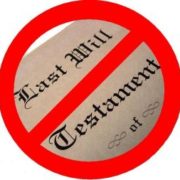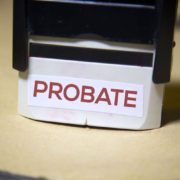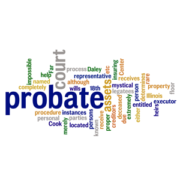I Need Medicaid, How Can I Keep My Home?
Baron Law LLC, Cleveland, Ohio, offers information for you to reflect upon while you are setting out looking for an estate planning attorney to help protect as much of your assets as you can. For more comprehensive information contact Baron Law Cleveland to draft your comprehensive estate plan to endeavor to keep more of your assets for your heirs and not hand them over to the government by way of taxes.
Caring for elderly loved ones, yourself or others, is not cheap. Assisted living facilities, nursing homes, and hospice care can easily run thousands of dollars a month and, as such, most people cannot afford to pay for it out of pocket for very long. We’ve all heard the horror stories, people stuck in dilapidated or abusive care facilities or having to spend every last cent just for a bed in a proper facility. No one expects to spend the last years of their lives in such an appalling state, but tragically, it happens more often than you think. To combat this, many resort to relying on government assistance to pay for managed care. To qualify for that assistance, however, many people must “spend down” their assets or reduce their income in order to become eligible for government programs, namely Medicaid.
The thought of having to choose between either having a fire sale and/or willingly living in a crummy facility and/or becoming a burden on your family is hardly an attractive prospect. Everyone wants to pass as much of their money and assets on to friends and family and no one wants to become a burden. Medicaid is well aware of this and imposes a five-year “look back” period for eligibility to ensure that people don’t simply transfer their money and assets away to qualify for government benefits.
There are estate planning strategies available, however, that will allow major assets to stay within the family while still maintaining Medicaid eligibility. The Caregiver Child Exemption, also known as the Adult Child Caregiving Exemption, is perhaps the one of most popular Medicaid planning tools available to preserve assets while maintaining eligibility. An estate planning attorney is in the best position to advise you on the best course of action given your particular circumstances but becoming familiar with the landscape and legal language of Medicaid will help you make the best decisions when the time comes for action.
Why should I care/How does this benefit me?
We are all naturally self-interested, so the first question everyone asks is, how does the Medicaid Caregiver Child Exemption benefit me?
In a nutshell, this is an exemption to the five-year lookback for Medicaid eligibility that can allow you to stay in your home instead of a nursing home or assisted living facility and still receive Medicaid assistance. Regardless of how nice a managed care facility is, everyone is more comfortable in their own home. The Medicaid Caregiver Child Exemption increases the amount of time you can spend in your own home before the realities of your own health force to into a more intensive care facility.
How does the Medicaid Caregiver Child Exemption work?
To qualify for the Exemption, the caregiving child must live in the home with their parent(s) for at least two years prior to the parent becoming eligible for Medicaid benefits. Further, the caregiving child must provide a level of care that effectively prevents the parent for needing to stay in a nursing home or assisted care facility. This at-home care saves the Medicaid program money and frees up much needed bed space in Medicaid approved facilities, hence the reason Medicaid offers the Exemption in the first place.
To effectively understand how the Exemption operates, and exploit it to the fullest extent, one must understand its constituent parts. Note, all the following criteria must be satisfied in order for the Exemption to apply.
What’s a “Child” under the Exemption?
A child under the Exemption is limited only to a biological or legally adopted child. A niece, nephew, grandchild, cousin, aunt, uncle, or stepchild does not count. Medicaid constricts eligible transfers only to direct decedents in order to prevent abuse of the Exemption and because, more often than not, our children are the ones who are going to step up and provide the needed care for parents.
To prove a qualifying family relationship, usually a birth certificate or adoption certificate is used.
What’s a “Home” under the Exemption?
The only “homes” eligible for the Exemption are those of primary residence. No vacation homes, secondary residences, or rental properties. Further, the child caregiver and the parent must reside together for the entirety of the two years. Medicaid wants to ensure the home is actually being used to provide healthcare for the parent in lieu of a managed care facility. If an adult child and parent are living together for an extended period of time, its more likely the Exemption is being used for legitimate purposes rather than a cover for an improper transfer of property.
To prove a qualifying home, evidence such as utility bills, tax returns, of government ID’s for both the parent and child caregiver for at least two years prior to Medicaid eligibility are sufficient.
What’s “Care” under the Exemption?
A child simply living with a parent, cooking meals, doing laundry, picking up medication, is not enough. The amount and manner of care must be enough to establish to Medicaid that the labors of the child caregiver is the reason why the parent isn’t in a nursing home or assisted living facility. If such labor is the difference between the parent staying at home or taking up a bed in a professional facility, then the non-disqualifying transfer of the home to the child is justified.
Establishing the proper level of care is the hardest criteria to prove. This is usually established by having the primary care physician of the parent complete and sign a Medicaid form clearly documenting the care provided by the child. Legal documentation that the care of the child prevented institutionalization of the parent during the two-year lookback is required as well. Any additional documents from family, friends, and medical professionals demonstrating the labors of the child caregiver is beneficial as well.
How to Apply
You don’t file or apply to use the Exemption in the conventional sense. When applying for Medicaid, you also submit the documentation establishing the transfer of your home to your child qualifies for the Exemption. Obtaining the required documentation to prove the applicability of the Exemption is the hardest part. Further, because the burden of proof lies with the applicant, Medicaid will show no leniency for mistakes or omissions.
This is why Medicaid planning and retaining legal counsel is so critical. The Exemption criteria should be met as soon as practical, so the two-year look back can start running as soon as possible. Further, an attorney can ensure all the documentation and forms are properly filled out, executed, and mailed to the proper government agency. Last the thing you want is to find out you have months or years of additional Medicaid ineligibility because an additional penalty period was accrued due to improperly gifting your home to your child.
What if I mess up and the Exemption doesn’t apply?
If the transfer of the home was improper, Medicaid will deny that the Exemption apples, consider the house a qualifying asset, and a penalty period will accrue in proportion to the value of the house. This means on top of the two years that the child caregiver must live with a parent before Medicaid eligibility, a period of further ineligibility is added. This period is determined based on the dollar amount of value of the house divided by either the average monthly private patient rate or daily private patient rate of nursing home care in Ohio.
The home that you lived in for years, if not decades, is one of your most valuable assets, both financially and emotionally. Old age, however, means significant money is needed to live comfortably, even more so in the event of illness or disease. Wise use of the Medicaid Child Caregiver Exemption can cut off years of Medicaid ineligibility and enable comfortable and convenient caregiving for families with ailing parents. Use of the Exemption, however, is not guaranteed and proper steps must be taken. This is why an experienced estate planning attorney can mean the difference between living in your own house receiving much-needed government assistance or waiting years for help or being forced in live in second-rate managed care facilities.
Also, should an elderly individual already be receiving Medicaid benefits, the family should contact a local Cleveland estate planning attorney and find out if the Medicaid Child Caregiver Exemption is still available.
You don’t have to be rich to protect what you’ve spent a lifetime trying to build. To find out whether a trust is right for your family, take the one-minute questionnaire at www.DoIneedaTrust.com. There are a number of different trusts available and the choices are infinite. With every scenario, careful consideration of every trust planning strategy should be considered for the maximum asset protection and tax savings. For more information, you can contact Mike Benjamin of Baron Law LLC at 216-573-3723. Baron Law LLC is a Cleveland, Ohio area law firm focusing on estate planning and elder law. Mike can also be reached at mike@baronlawcleveland.com.
Helping You And Your Loved Ones Plan For The Future
About the author: Mike E. Benjamin, Esq.
Mike is a contracted attorney at Baron Law LLC who specializes in civil litigation, estate planning, and probate law. He is a member of the Westshore Bar Association, the Ohio State Bar Association, the Cleveland Metropolitan Bar Association, and the Federal Bar Association for the Northern District of Ohio. He can be reached at mike@baronlawcleveland.com.
Disclaimer:
The information contained herein is general in nature, is provided for informational and educational purposes only, and should not be construed as legal or tax advice. The author nor Baron Law LLC cannot and does not guarantee that such information is accurate, complete, or timely. Laws of a particular state or laws that may be applicable in a given situation may impact the applicability, accuracy, or completeness of the preceding information. Further, federal and state laws and regulations are complex and subject to change. Changes in such laws often have material impact on estate planning and tax forecasts. As such, the author and Baron Law LLC make no warranties regarding the herein information or any results arising from its use. Furthermore, the author and Baron Law LLC disclaim any liability arising out of your use of, or any financial position taken in reliance on, such information. As always consult an attorney regarding your specific legal or tax situation.










